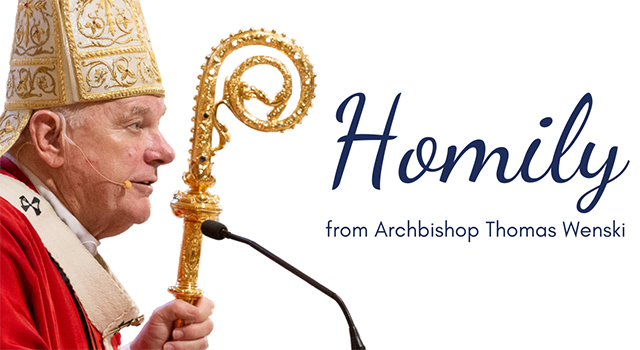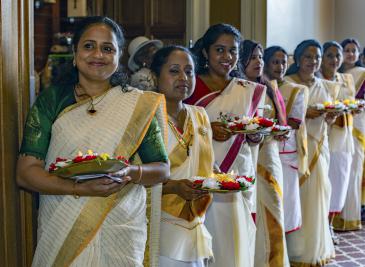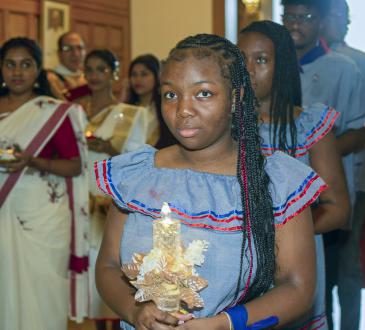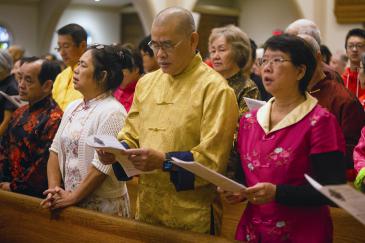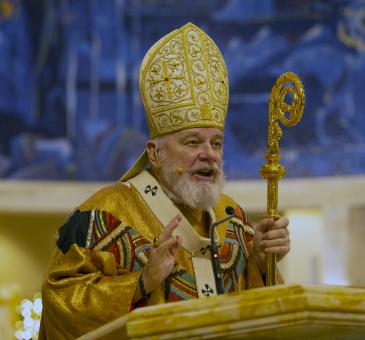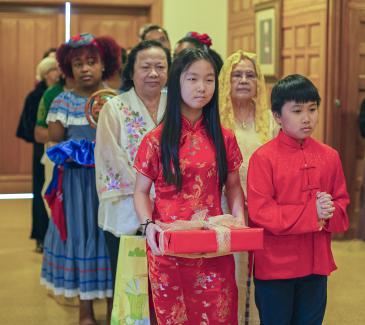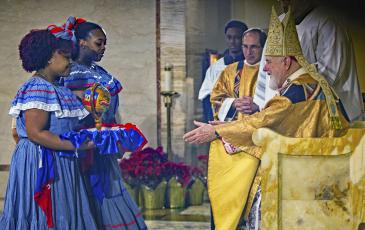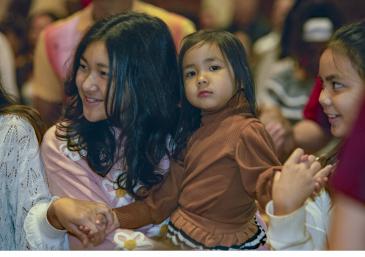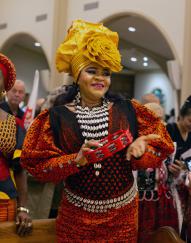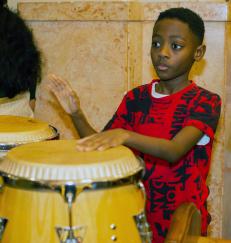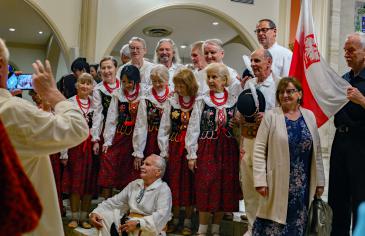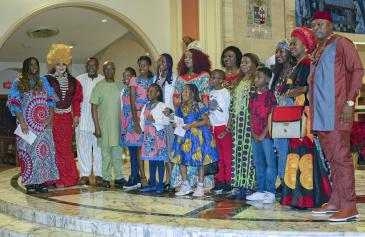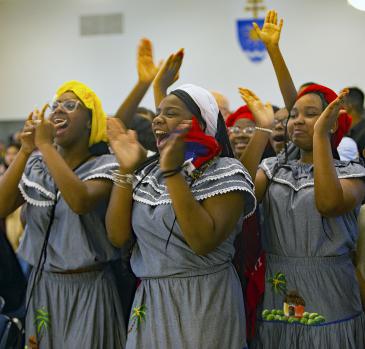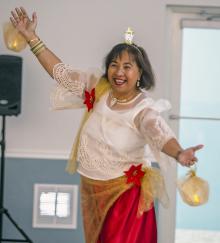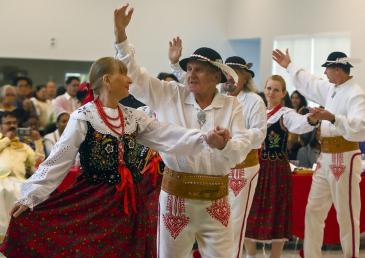By Archbishop Thomas Wenski - The Archdiocese of Miami
Photography: MARLENE QUARONI | FC
Archbishop Thomas Wenski preached this homily while celebrating the annual Migration Mass, on the feast of the Epiphany, Jan. 7, 2024, at St. Mary Cathedral.
Today’s feast of the Epiphany reminds us that Jesus came not only for the people of Israel but for the Gentiles as well.
This is what the journey of those Wise Men, or Magi, represents in the Gospel reading today. For this reason, the feast of the Epiphany – or the revelation of the Christ Child to the nations – is an opportunity for us to remember that the salvation offered by Christ is universal or as they say in Greek, katolika, excluding no race or nation. If salvation is “katolika” or universal, then the Church that exists to give the good news of Salvation in Christ, should also be universal, or “catholic.”
So, as you can see this morning at this Migration Day Mass, our Church is very Catholic. This Migration Mass honors the various ethnic and national ministries in the archdiocese and it’s a witness to the fact that Jesus came to save men and women of all nations and races.
In fact, to be a good Catholic, Jesus doesn’t ask us to change our culture, our language, our customs – or even our race, if that were possible. He only asks us to change our hearts.
Thus, in a world increasingly polarized by racism, by nationalisms, by xenophobia, a world torn apart by violence, poverty and war, the Church must show what a reconciled and reconciling world could look like. Pope Benedict XVI once observed that globalization has made the whole world neighbors, but it hasn’t made us brothers and sisters. We can live as brothers and sisters if we change our hearts, if we allow ourselves to be guided by that same light that led the Magi to Bethlehem, to the Manger, to the Christ Child.
As Americans, and no matter where we came from, or where we were born, all of us here are proud to say that we are Americans.
Our national motto, “E pluribus unum” (Out of many one), recognizes this rich diversity of peoples present in the United States. Such diversity of races and ethnicities does not divide us — only sin does.
A tree, even if transplanted to new soil, can grow, and produce rich fruits if its roots are protected and tended to. Like skin protects the body from disease and injury, culture protects people. So too, the various national groups and ethnicities can grow and prosper in the “new soil” of America if, even while adapting to the conditions of the new country, they preserve and protect their cultural roots.
Americans have a great national heritage of welcoming the newcomer. Fear and intolerance have occasionally tested that heritage — but for the most part, we have kept dear the words of scripture, “Do not neglect hospitality, for through it some have unknowingly entertained angels” (Heb 13:2).
Immigration is a drama that each of us has participated in one way or another, for immigration is a lived reality for most Americans. Even those of us born in this country can find stories in our own families of parents, grandparents or great-grandparents leaving the “old country” for the promise of America.
Like Magi who came to Bethlehem bearing gifts, so too do immigrants bring many gifts to our nation. Immigrants bring their talents, their hopes, their energy. They represent an infusion of “new blood” that enriches us all by revitalizing and renewing American society.
